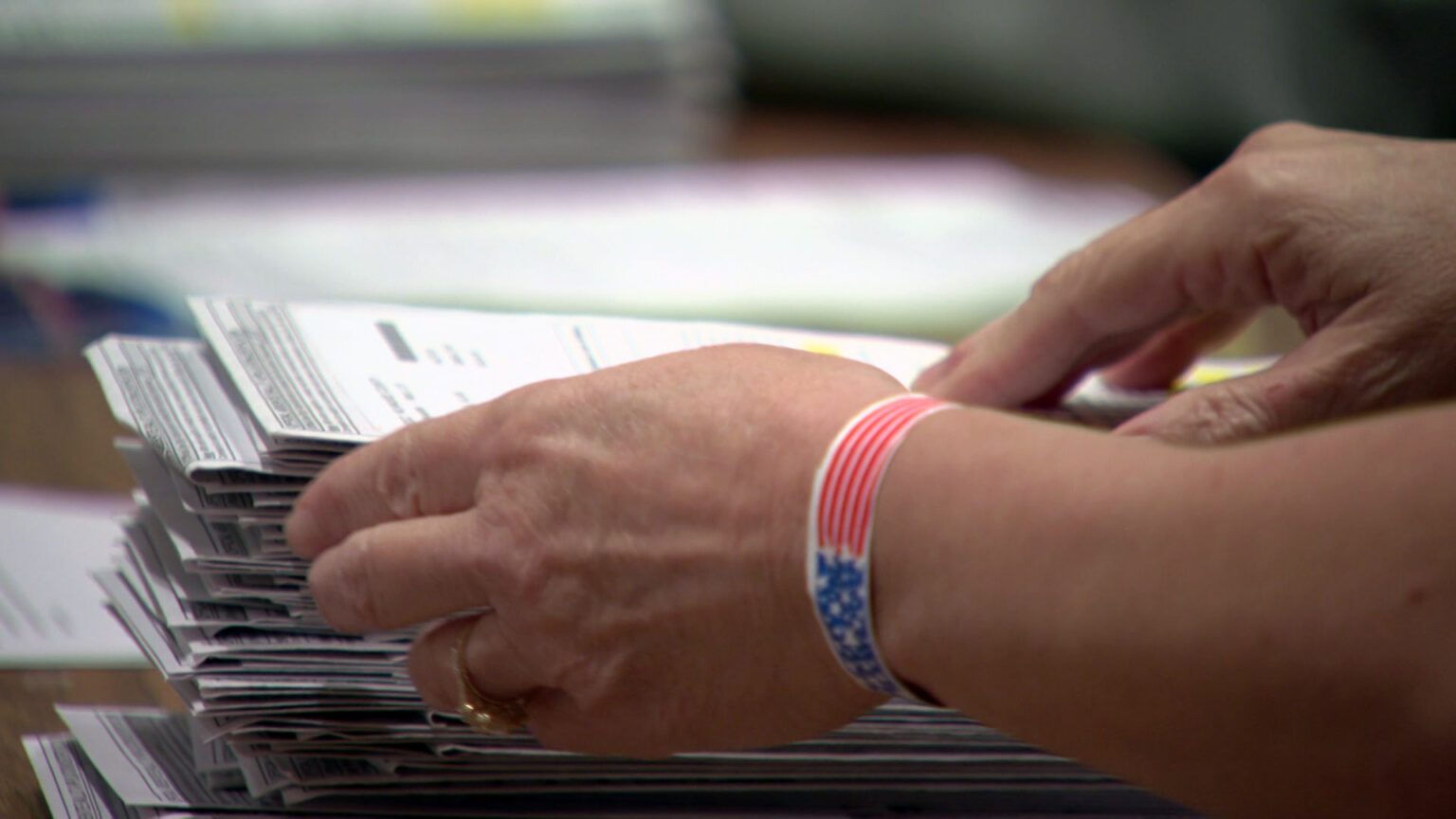Wisconsin Republican lawmakers appeal ruling allowing disabled people to obtain ballots electronically
Republican lawmakers in Wisconsin lawmakers filed notice of appeal to a Dane County Court ruling that issued a temporary injunction allowing disabled voters in the state to download absentee ballots but still requires for their return in-person or by mail.
Associated Press
June 30, 2024

A poll worker reviews absentee ballots at a Milwaukee polling place on Nov. 9, 2022. Republican lawmakers are appealing a Dane County Court ruling that would allow disabled voters to receive absentee ballots electronically. (Credit: PBS Wisconsin)

MADISON, Wis. (AP) — Republican legislators in battleground state Wisconsin on June 28 appealed a ruling that allows disabled people to download absentee ballots at home in November’s presidential election.
Disability Rights Wisconsin the League of Women Voters and four disabled voters sued in April demanding disabled people be allowed to download absentee ballots at home and return them to local clerks via email.
Currently in Wisconsin anyone can cast a paper absentee ballot but they must return them in-person to local election clerks or mail them back. Anyone could request an absentee ballot electronically until 2011, when then-Gov. Scott Walker signed a Republican-authored bill that allowed only military and overseas voters to use that method. Those voters still must mail their ballots back just like in-state absentee voters.
The plaintiffs argued in their lawsuit that many people with disabilities can’t cast paper ballots without assistance, compromising their right to cast a secret ballot, and struggle to return ballots through the mail or in-person. The lawsuit seeks a ruling allowing disabled people to download absentee ballots, cast them at home using assistive devices and return them to clerks via email in the Aug. 13 primary and the November presidential election.
Dane County Circuit Judge Everett Mitchell granted a temporary injunction on June 25 that allows clerks to send voters who self-certify that they can’t read or mark a paper ballot without help ballots electronically in the November election. They will still have to return the ballots in-person or by mail, however.
GOP legislators filed notice of appeal on June 28 in the 2nd District Court of Appeals in Waukesha, which leans heavily Republican. The lawmakers indicated that they plan to argue that Mitchell improperly granted the injunction because the plaintiffs are unlikely to win the lawsuit and failed to show they’d suffer irreparable harm without the order. They also plan to argue that Mitchell wrongly disrupted the status quo just months before the election.
Doug Poland, one of the plaintiff’s attorneys, declined to comment on the filing on the afternoon of June 28.
Questions over who can cast absentee ballots and how have become a political flashpoint in Wisconsin, where four of the past six presidential elections have been decided by less than a percentage point.
More than 30 states allow certain voters to return their ballots either by fax, email or an online portal, according to data collected by the National Conference of State Legislatures and Verified Voting, a nonpartisan group that studies state voting systems. The method has expanded in recent years to include disabled voters in a dozen states. Experts have warned, however, that electronic ballot return carries risks of ballots being intercepted or manipulated and should be used sparingly.
Disabled people have engaged in several legal battles in recent years over access to the polls, as many Republican-led states have restricted how and when people can vote. Among the issues they have fought are limits on the types of assistance a voter can receive and whether someone else can return a voter’s mailed ballot.
Nearly 100,000 Wisconsin adults suffer from vision difficulties, according to statistics compiled by state health officials. A little more than 307,000 adults have difficulty moving, including difficulty walking, climbing stairs, reaching, lifting or carrying things.
 Passport
Passport











Follow Us